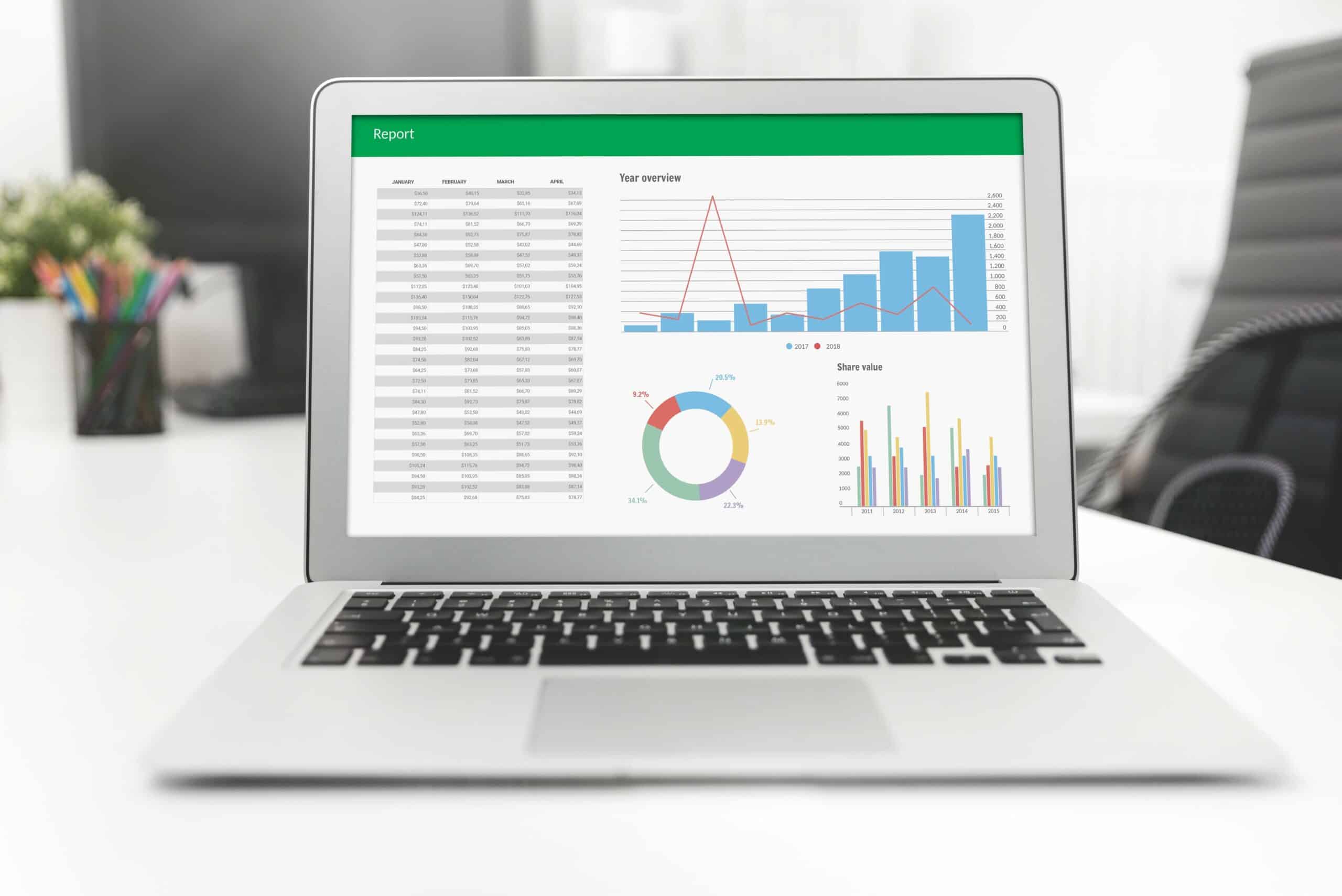Nonprofit organizations face the dual challenge of managing voluminous data and leveraging it to drive mission success. This is where the specialized fields of data strategy consulting and data management consulting become indispensable. By harnessing these services, nonprofits can revolutionize their operations, achieving greater impact and efficiency. This article explores how engaging with these consulting practices can be a game-changer for nonprofit entities.
Why Collect Data? The Importance of Data Collection and Utilization for Nonprofits
Nonprofits collect a plethora of data ranging from client, partner, and donor information, to funding data, and program tracking. However, the sheer volume does not guarantee effectiveness. This is where data strategy consulting steps in. It involves developing a comprehensive plan that aligns data collection and usage with the organization’s goals.
Essentially, data strategy consulting is the process of advising organizations on how to leverage data effectively to meet their strategic objectives. For nonprofits, this means identifying opportunities to enhance fundraising efforts, better understand their beneficiaries, and measure the impact of their programs more accurately. This strategic approach ensures that data serves as a beacon, guiding decision-making processes and enhancing program delivery.
The Role of Data Management Consulting
Data management consulting complements data strategy by focusing on the operational aspect of handling data. For nonprofits, effective data management means that they can track progress, report to stakeholders transparently, and make informed decisions quickly. This level of organization and accessibility means that nonprofits can trust the integrity of their data and use it to drive their mission forward.

What Do You Do With Your Data?
Data isn’t just numbers and text; it’s a powerful asset that, when used wisely, can significantly enhance your organization’s impact and efficiency. Understanding what to do with your data is crucial in navigating the path from collection to action. Here’s how nonprofits can leverage their data to drive mission success:
Data Collection and Integration
- Data Gathering: The first step involves collecting data from various sources, including clients, donors, partners, and external datasets. This process is guided by the strategic objectives of the nonprofit, ensuring that the data collected is relevant and valuable.
- Data Integration: Once collected, data from disparate sources is integrated into a cohesive system. This involves resolving data format inconsistencies, deduplicating records, and ensuring data quality. The goal is to create a unified view of information that can be easily accessed and analyzed.
Data Analysis and Interpretation
- Descriptive Analytics: This involves analyzing historical data to understand past performance and trends. Descriptive analytics help nonprofits gain insights into donor behavior, program effectiveness, and operational efficiencies.
- Predictive Analytics: Leveraging advanced statistical models and machine learning algorithms, predictive analytics forecast future trends, donor behaviors, and potential funding opportunities. This forward-looking approach enables proactive decision-making.
- Prescriptive Analytics: Going beyond prediction, prescriptive analytics suggests actions based on the data analysis. It helps nonprofits identify the best courses of action to achieve their objectives, whether it’s optimizing fundraising strategies or improving program outcomes.
Data-Driven Decision Making
- Strategic Planning: Insights derived from data analysis inform strategic planning processes. This includes setting priorities, allocating resources, and designing programs that align with the nonprofit’s mission and the needs of the communities they serve.
- Performance Monitoring: Data enables continuous monitoring of organizational performance against goals and benchmarks. This real-time feedback loop allows for quick adjustments and ensures that strategies remain effective and aligned with objectives.
Stakeholder Engagement and Reporting
- Donor Engagement: Data-driven insights into donor preferences and behaviors guide personalized communication and engagement strategies. This enhances donor satisfaction and loyalty, leading to improved fundraising outcomes.
- Impact Reporting: Clear, concise, and compelling data-driven reports demonstrate the nonprofit’s impact on clients, donors, stakeholders, and the community. This transparency builds trust and supports ongoing and future fundraising efforts.
Data Governance and Ethics
- Data Privacy and Security: Ensuring the confidentiality, integrity, and availability of data is paramount. This includes adhering to legal and ethical standards for data protection and privacy.
- Ethical Use of Data: Beyond compliance, ethical considerations guide how data is collected, analyzed, and used. This ensures that data practices respect the dignity and rights of all individuals and communities involved.
From Data to Action: How Nonprofits Can Benefit from Strategic Data Management Consulting
Nonprofit organizations operate in an increasingly data-driven world. The strategic use of data can significantly enhance their ability to fulfill their missions, optimize their operations, engage with donors, and measure their impact. Here are several key points that explain how nonprofits can use strategic data management consulting to their advantage:

Enhancing Decision-Making
Data strategy consulting equips nonprofit organizations with the tools and methodologies to collect, analyze, and interpret data effectively. This enables informed decision-making, allowing nonprofits to allocate resources more efficiently, prioritize their programs based on evidence, and adapt to changing circumstances with agility. By leveraging data, nonprofits can make decisions that are not just based on intuition or historical precedents but grounded in current realities and predictive insights.
Optimizing Impact Measurement
One of the core challenges for nonprofit organizations is demonstrating their impact to donors, stakeholders, and the communities they serve. Data strategy consulting helps organizations develop robust frameworks for measuring outcomes and impact. This includes identifying key performance indicators (KPIs), setting up systems for data collection, and employing analytical tools to assess the effectiveness of their programs. Clear, data-driven evidence of impact can enhance credibility, support fundraising efforts, and inform strategic planning.
Improving Donor Engagement and Fundraising
Data strategy consulting can revolutionize how nonprofits engage with their donors. By analyzing donor data, nonprofits can gain insights into donor behavior, preferences, and patterns. This enables personalized communication strategies, targeted fundraising campaigns, and better donor retention tactics. Data-driven approaches to donor engagement can significantly increase fundraising effectiveness, ensuring that nonprofits have the resources they need to pursue their goals.
Streamlining Operations
Nonprofits often operate under tight budget constraints. Data strategy consulting can help these organizations identify operational inefficiencies and areas for cost savings. By analyzing operational data, nonprofits can streamline processes, reduce waste, and optimize the use of their resources. This not only improves the sustainability of the organization but also ensures that a larger portion of their resources is directed toward their mission-critical activities.
Facilitating Collaboration and Sharing
Data strategy can foster a culture of collaboration both within the organization and with external partners. By establishing data standards, governance, and sharing protocols, nonprofits can more easily collaborate with other organizations, government entities, and the private sector. Effective data sharing can amplify the impact of nonprofit initiatives through coordinated efforts and shared learning.
Adapting to Digital Transformation
In the digital age, nonprofits face the challenge of adapting to rapidly changing technologies and digital expectations from their stakeholders. Data strategy consulting can guide nonprofits through the process of digital transformation, ensuring that they leverage technology not just for operational efficiency but also for enhancing their service delivery, engaging with digital-savvy donors, and expanding their reach through various digital platforms.
Implementing Data Strategies in Nonprofits
To transition from collecting data to effectively using it, nonprofits should consider the following steps:
- Develop a Data Strategy: Define what data is needed, how it will be collected, and how it will be used in alignment with your organization’s goals.
- Invest in Technology and Skills: Utilize tools and platforms that facilitate data collection, analysis, and visualization. Train your team or partner with experts who can extract meaningful insights from your data.
- Foster a Culture of Data Literacy: Encourage everyone in your organization to understand and use data in their roles. Promote transparency, share insights, and celebrate successes driven by data-informed decisions.
- Regularly Review and Adapt: Data-driven practices require ongoing evaluation. Regularly assess your data strategy and management practices to ensure they remain aligned with your evolving goals and the external environment.
Challenges and Solutions to Data Strategy & Management Consulting
Despite the clear benefits, nonprofits may encounter hurdles such as budget constraints, lack of expertise, and resistance to change. Partnering with experienced consultants in data strategy and management can help navigate these challenges. Consultants bring in-depth knowledge and best practices, tailoring solutions that fit the nonprofit’s size, scope, and budget.
Provisio’s Salesforce Consultancy for Nonprofits
At Provisio, we specialize in transforming nonprofit operations through our Salesforce services. Our expertise in data strategy consulting and data management consulting positions us uniquely to address the specific needs of the nonprofit sector. Our approach is collaborative, working closely with organizations to understand their mission, challenges, and aspirations.
Here are some of the core services we offer to help nonprofits achieve their goals:
- Insightful Data Metrics Analysis
- Unified Data Connectivity
- Efficient Data Migration Solutions
- Vibrant Data Visualizations
- Rigorous Data Cleansing Processes
- Comprehensive Reporting Tool Training
Our solutions are designed to streamline operations, enhance donor engagement, and deliver actionable insights, all while being scalable and secure. Whether you’re looking to refine your data strategy, overhaul your data management practices, or both, our team offers the expertise and technology to propel your organization forward.
Why Choose Provisio for Your Nonprofit’s Data & Analytics Needs?
The following are just a few reasons why nonprofit organizations trust Provisio to streamline their data and analytics:
Tailored Strategies
Our solutions are not one-size-fits-all. We tailor our consulting services to align with your nonprofit’s unique objectives and challenges.
Salesforce Expertise
As the largest dedicated Salesforce partner dedicated to health and human services, we leverage the platform’s powerful features to optimize your data strategy and management practices.
Commitment to Nonprofits
We understand the nonprofit landscape and are deeply committed to helping organizations maximize their impact through effective data use.
Get Started with Provisio
The digital transformation journey for nonprofits is not just about adopting new technologies but about strategically leveraging data to drive mission success. With the right consulting partners, your organization can navigate the complexities of data strategy and management, setting a course for sustained growth and increased impact.
For nonprofit organizations looking to elevate their operations through data strategy consulting or data management consulting services, Provisio is here to guide you. Our team of experts is ready to help you unlock the full potential of your data, ensuring it works as hard as you do towards achieving your mission.
Contact us at Provisio to learn more about our services and how we can assist your organization in harnessing the power of data for greater impact and efficiency. Let’s work together to transform your operations and amplify your impact through strategic and effective data management. Reach out to us today and take the first step towards a data-driven future.
FAQs
Data strategy consulting involves creating a strategic plan that outlines how an organization can collect, manage, and utilize data to achieve its goals. It ensures that data is aligned with the organization’s mission, objectives, and operational needs.
Data management consulting focuses on the technical and operational aspects of handling data, such as data storage, governance, quality, and security. In contrast, data strategy consulting addresses the broader vision and plan for leveraging data to support strategic objectives.
Yes, small nonprofits can significantly benefit from data strategy and management consulting by gaining insights into optimizing resources, enhancing fundraising efforts, and improving program outcomes, even with limited budgets.
A nonprofit should review and potentially revise its data strategy at least annually or whenever there are significant changes in its operations, objectives, or the external environment to ensure continued alignment and effectiveness.

Marjorie lives in Saint Louis, Missouri. She received her Master’s degree in English from Truman State University. Her responsibilities at Provisio Partners include content creation and technical writing.

